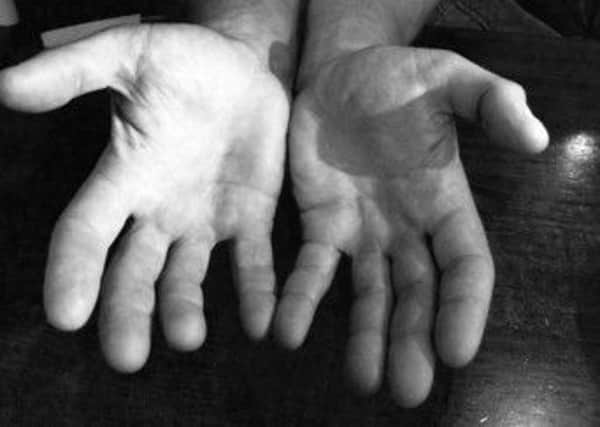Roger Cox: No-ropes climber Lines on risk & reward


Partly this is because of the way he uses them in conversation – fingers outstretched as if curling around invisible holds on a rock face whenever he’s searching for a precise word or explanation. Mostly, though, it’s because – as his new book, Tears of the Dawn makes abundantly clear – they have taken an almighty battering during his 30 year career. During countless climbs they have been scraped, torn, slashed, battered and bruised. In Brazil, they were punctured by cactus spines at the top of a route, when his only hope of survival was to embrace a large, prickly plant; and in Australia, a nasty accident left him with what he describes as “a large flap of skin hanging from one palm”.
When I first glance down at his digits, then, I’m expecting to see an ugly mass of scars and abrasions, but incredibly there’s hardly a mark – a testament, I suppose, to the human body’s powers of self-repair.
Advertisement
Hide AdAdvertisement
Hide AdThere are a few scars still visible, though, including a prominent one on the back of his left hand.
“I was climbing a route on Ramshaw [in Staffordshire] called Ramshaw Crack,” Lines explains. “As you go up, the crack you’re climbing gets wider and wider and as it widens you have to start jamming your hands into it. My hands are quite small, and as I got near the top I could feel my left hand slipping. I thought ‘I’m not going to fall off this!’ so I rammed it in a bit further. I didn’t think the cut was too bad at the time but God no – it bled for ages and I ended up with this scar.”
Lines is what’s known as a free solo climber – that is, somebody who chooses to climb without ropes – so on many of his excursions falling isn’t an option. That said, he has survived some miraculous close calls, notably on his latest project, Hold Fast, Hold True – a route graded E9/10 on Whale Rock in Glen Nevis. A climb of that difficulty will test the best, even with protection; only a few elite climbers would even consider attempting it without ropes or pads. Lines completed it in October, but not before falling 30 feet during one ill-fated bid for the top. Incredibly, a YouTube clip shows him getting up and walking away unscathed (although rubbing his poor, battered hands).
When I ask Lines how many of his nine lives he’s used up, he doesn’t have to think for a second – he simply grins and shoots straight back with “eleven”.
Climbing ropes-free is clearly dangerous – so why do it?
“To me, it’s all about the freedom of the hills,” he says. “I think I felt that for much of my childhood I was incarcerated [Lines was brought up by a guardian and sent to boarding school] and when you’ve got a rope on it feels like you’re incarcerating yourself.
“Also, you need a partner if you’re going to climb with ropes. You haven’t got the freedom to think ‘Oh, I just want to go out climbing today.’ You need to ring around and find people.
“Plus the whole thing [climbing with ropes] is a bit mechanical. It’s like ‘we’ve made these ropes, we’re humans, we’re clever, we’ve designed things so we can tackle this.’ I just think ‘No, give the rock a chance! Let’s go back to basics and see how good we really are.’”
Advertisement
Hide AdAdvertisement
Hide AdClimbing seems to produce a disproportionate amount of high quality literature (in contrast to, say, football, which seems to produce approximately one per cent gold and 99 per cent bargain bin fodder.) Even in an already distinguished field, however, Lines’ book stands out. The descriptions of the climbs are so detailed, so vivid, that even non-climbers will find them utterly absorbing, and then there’s the total, sometimes brutal honesty with which he analyses his own psyche. After one particularly bad fall, he recounts how one of his friends suggested that his climbing obsession “had to do with ‘accidental suicide.’” I ask him what he understands by the term.
“At that time, climbing was all I wanted to do,” he says. “I didn’t really care what happened to me. All that mattered was climbing, and if I died climbing, well, so be it.”
• Tears of the Dawn, £23, Shelterstone, www.shelterstone.co.uk